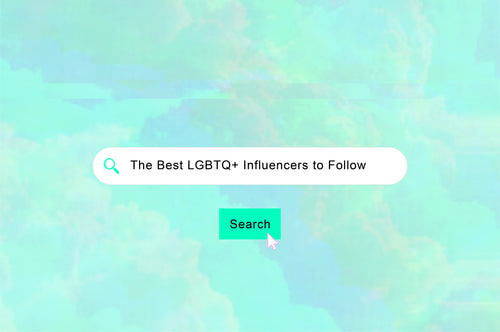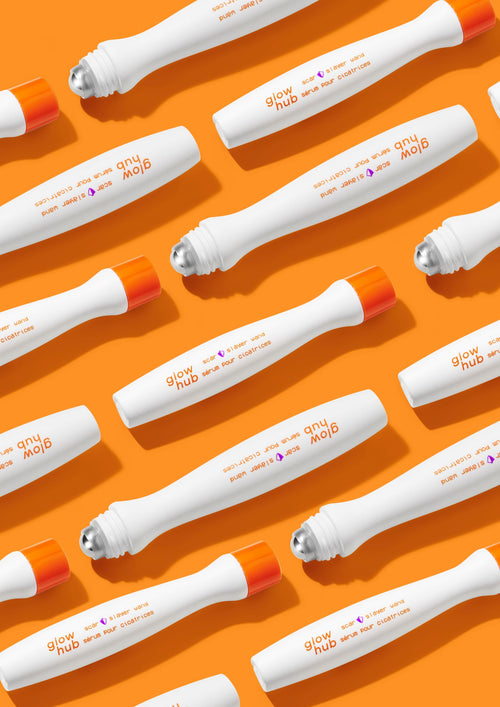
ooops... your cart is empty.
Time to glow...
✋Click, Hold & Drag your products here
Shipping
Free Delivery for orders Over £30
Next Day delivery available
by Guest Author |
written by Olamide (Olly) Tolu-Ogunpolu
‘Do we (Black people) burn?’
I distinctly remember the day a (Black) girl in my year asked me this question, and I told her I had no idea. And to be honest, I didn’t have any idea until a year later.
This is particularly relevant considering the rates of skin cancer (melanoma) has increased by almost a third in the last ten years, and the lack of knowledge and engagement around sun protection, especially when it comes to darker skin.
Funnily enough, this has a lot to do with how historically, darker-skinned people have been excluded from beauty. I cringe at memories of my mum rubbing me down with SPF, only for me to head off to primary school looking almost literally like a Smurf, because that’s really all there was – and after that, I didn’t wear SPF until I was about 18. Those experiences made SPF into some sort of beauty bogey man, even more so than shade matching foundations or concealers.
Much like complexion products being extremely limited (to the benefit of fairer skin tones), it’s only been relatively recently that we’ve been able to conveniently purchase sunscreens that don’t leave us with a very obvious white cast. This isn’t to say that they didn’t exist, but not exactly in your local Superdrug or Boots; generally, Korean and Japanese formulas have been lifesavers since the early days, but these could be a hassle to ship and were not necessarily cost-effective.
There also remains a startling lack of education around darker skin and sun damage, as well as some perpetually harmful myths that have stuck around.
It doesn’t help that we see a lot of examples of skin conditions on fairer skin, and some medical descriptors are inherently exclusive (to that point, what the hell does a ‘blue face’ look like if you’re shade Fenty #400 and up???). This exclusion can have serious real-life implications – melanoma can, in some cases be fatal. There is a tendency to think of skin cancer or sun damage as ‘minor’ compared to other conditions, but we need to remember that our skin is the largest organ in the body and has a very important job, so keeping it healthy should be a priority.
Of course, sun protection is also vital for aesthetic purposes, such as preventing premature aging, fine lines and helping to reduce scarring and hyperpigmentation. In case you didn’t know, the skin produces more melanin in response to sunlight (which is also what tanning is), meaning scarring and dark marks can become darker after prolonged sun exposure. Simply put, products like antioxidants, retinoids or peels are moot without SPF.
All in all, there really is no good reason sunscreen shouldn’t be a part of your daily routine and if you’re still unsure, I’ve debunked some common myths about sunscreen and darker skin below:
Sunscreen is a new-fangled money grabbing scheme
While sunscreen in its modern form is relatively new, sun protection as a whole really isn’t. Historically, people have used a variety of different methods such as applying mud or other natural pastes, hats, masks or visards, and parasols; although these were probably great at the time, we have, and should want better for ourselves.
The point is, sun protection has existed in some shape or form for a looong time, and while there are things to be said about certain formulas or ingredient, it’s not a reason to forego sunscreen altogether.
High melanin is all the protection needed
Now this is one I had to unlearn too.
It is true that melanin absorbs UV rays, and so higher levels of melanin would provide more protection from sunburn. However, what this really means is that yes, it takes longer for darker skin to burn, it will at some point burn after prolonged exposure to the sun without adequate protection.
That’s why it’s important to not only apply, and reapply sunscreen, but where you can, try to avoid staying out in the sun for several hours at a time.
Sunscreen blocks the absorption of Vitamin D
Vitamin D deficiency is a genuine concern for many of us, especially those of us living in generally colder climates. This vitamin is important for healthy bones and teeth, as well as helping with your immune system; it is generally more difficult to get our daily recommended intake of Vitamin D from the sun and food, which is why the government recommends taking at least 10 micrograms a day in a supplement.
However, this is not exactly related to SPF; the effect of sunscreen on vitamin D production is near negligible, especially as even high SPF sunscreens don’t absorb all UVB rays and most of us aren’t using nearly enough sunscreen to make this an issue anyway.
I love tanning and looking glowy – I can’t do that without maximum sun
Since sunscreens don’t block all UV rays, you can absolutely tan while using sunscreen. In fact, I would argue that the best way to tan is gradually with proper sun protection, preventing the possibility of burning and reducing the risk of sun damage.
In terms of looking glowy, this depends more on the formulation of the sunscreen you’re using, as well as other skincare products such as your moisturisers and serums.
Don’t fry your skin in the name of the glow!
SPF is only necessary when outdoor or at the beach
It’s pretty understandable to think that you only need to wear sunscreen when outdoors but let me tell you why that’s not the case.
To my knowledge, most of us don’t have windows with UV blocking/reflecting capabilities, so you can still get sun damage over time even being indoors, especially on bright and sunny days!
In fact, some reflective surfaces (such as mirrors) can reflect UV rays at more potent levels, making it damaging to the skin. Have you heard of that thing about burning ants with the sun by using a magnifying glass?
Yeah, enough said.
When all is said and done, there are a wealth of sunscreens on the market at different SPF levels, and now many are truly universal with no white cast.
I’ve personally been enjoying Glow Hub’s SPF 30 Sun Silk; when you use the recommended amount (in this case 4-6 pumps, half a teaspoon, or two fingers’ worth), you get around 97% protection against UVB rays. Even better, it’s unscented and leaves no white cast on me – I’m around a Fenty #420/30 depending on the season – and gives me that much desired glow, without the greasiness.
There’s no real reason to avoid sunscreen anymore, especially when it comes to protecting your skin health – there’s an SPF out there for you, no matter your skin tone.
Back to News
-

-
Read More
-

-
Read More
Related Posts
The Best LGBTQ+ Influencers to Follow Right Now
However you feel about social media, the pros (the cons…) it can’t be denied that places like Ins...
The Scar Slayer Wand - Q&A
Breakouts. Sun damage. Inflammation. Sometimes they can leave their mark. Time to get rid… Meet T...